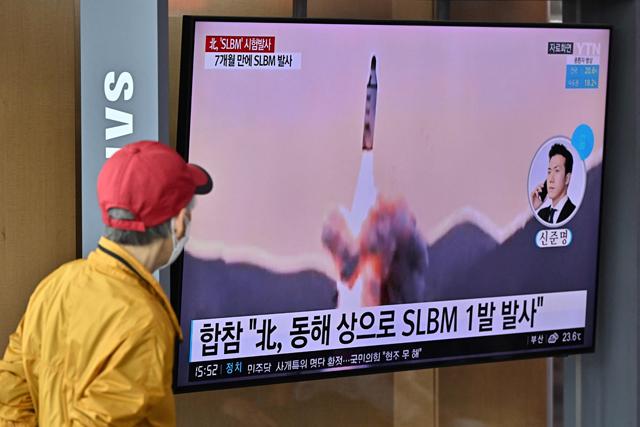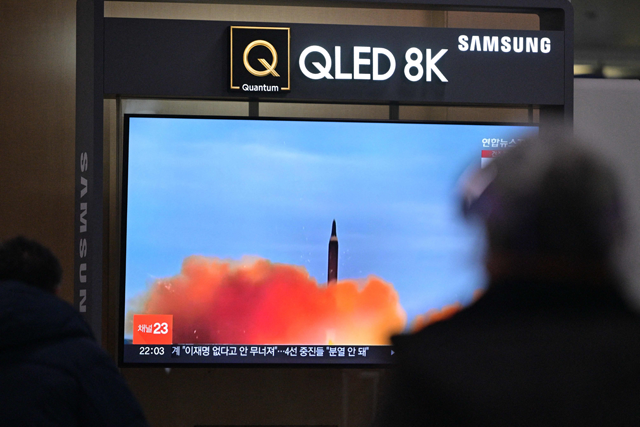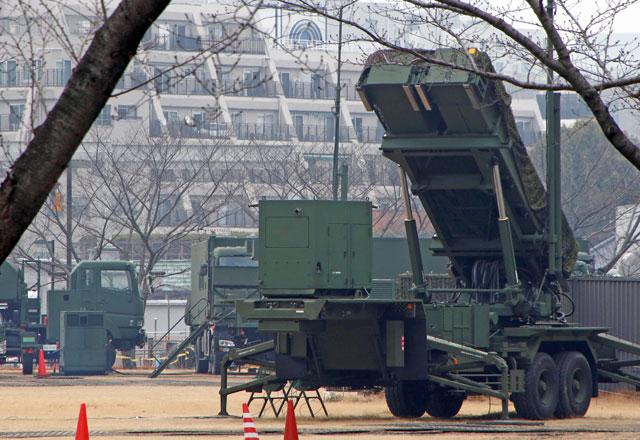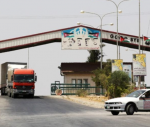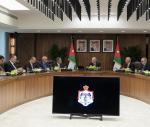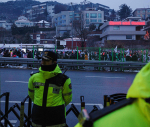You are here
New South Korean president talks to China, Japan leaders
By AFP - May 11,2017 - Last updated at May 11,2017
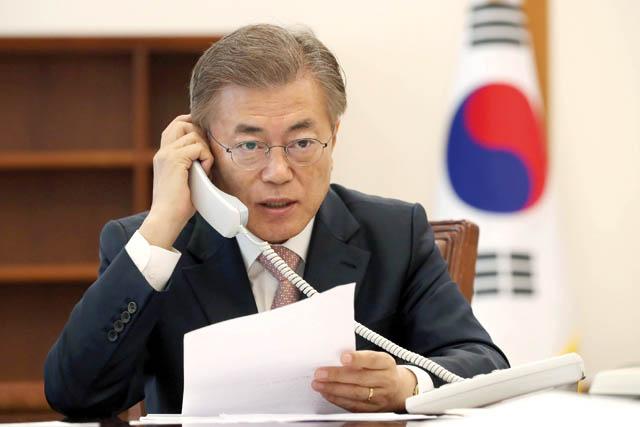
South Korean President Moon Jae-in speaks with Chinese President Xi Jinping by telephone at the Presidential Blue House in Seoul, South Korea in this handout photo provided by the Presidential Blue House and released by Yonhap, on Thursday (Reuters photo)
SEOUL — South Korea’s new President Moon Jae-in spoke to the leaders of China and Japan on Thursday, hours after a telephone call with his US counterpart Donald Trump, officials said, as he began shaping his approach to the nuclear-armed North.
Moon favours engagement with Pyongyang to bring it to the negotiating table, unlike his conservative predecessors and the US Trump administration, which backs stronger sanctions and has threatened military action.
But Moon also has to navigate a complex web of regional issues.
Beijing — the North’s biggest trade partner and diplomatic protector — is infuriated over the deployment of a US missile defence system in the South, and Seoul is embroiled in a row with fellow US ally Tokyo over wartime history.
Moon had a 40-minute conversation with Chinese leader Xi Jinping, his spokesman Yoon Young-chan told reporters, with the two agreeing denuclearising Pyongyang was a “common goal” between them.
China and South Korea enjoyed an increasingly warm relationship early in the tenure of Moon’s predecessor Park Geun-hye, drawn together by shared historical differences with Japan.
But ties have plummeted. Beijing sees the US Terminal High Altitude Area Defence (THAAD) system, newly installed in the South intended to guard against threats from the North, as a threat to its own military capabilities and has slapped a series of measures against South Korean businesses seen as economic retaliation.
Moon called for “dialogue along with sanctions and pressure” on the North, Yoon said, and — echoing the United States’ line — suggested that Beijing should do more to tame Pyongyang.
Moon has previously expressed ambivalence over the THAAD system and told Xi he was “well aware” of Chinese concerns about it.
The two leaders agreed to exchange special envoys “at an early date”, with Moon proposing sending a separate delegation to Beijing and Xi inviting him to visit, Yoon said.
Comfort women
Seoul and former colonial power Tokyo are both targeted by the North, but are in dispute over history and Park did not visit Japan while in office.
But in a 25-minute conversation, Moon and Japanese Prime Minister Shinzo Abe said they hoped to meet at an early date and exchanged invitations to visit, according to both sides.
Historical issues should be overcome “wisely” and not hamper the countries’ relationship or efforts to deal with the North, the Blue House quoted Moon as saying.
Mainstream historians say up to 200,000 women, mostly from Korea but also China and other parts of Asia, were forced to work in Japanese military brothels during World War II.
The plight of the “comfort women” has marred relations for decades but the two governments reached a “final and irreversible” agreement in late 2015, with Japan offering an apology and a payment to survivors.
But Korean critics said Japan did not go far enough under the deal, and earlier this year Tokyo recalled its ambassador over a statue symbolising the comfort women installed outside its consulate in Busan.
Moon told Abe that most Koreans could not accept the agreement, according to the Blue House, while Japan’s top government spokesman Yoshihide Suga said Abe told him it was “extremely important” to implement it.
The phone calls came a day after Moon and US President Donald Trump agreed on “close cooperation” over the North’s nuclear ambitions in their first conversation on Wednesday night.
The US is the South’s security guarantor and has 28,500 troops stationed in the country, but Seoul was startled when Trump suggested it should pay for the $1 billion THAAD system.
The North has staged two atomic tests and dozens of missile launches since the start of last year in its quest to develop a way to deliver a nuclear warhead to “imperialist enemy” the US.
Tensions have been running high with rhetoric intensifying on both sides, but Trump recently softened his posture, saying he would be “honoured” to meet the North’s leader Kim Jong-un.
North Korea last week accused the CIA of plotting with the South to assassinate Kim using a biochemical weapon, an allegation impossible to verify — and following the killing of his half-brother Kim Jong-nam in Malaysia with a banned nerve agent, a murder widely blamed on Pyongyang.
The North’s vice foreign minister, Han Song-ryol, briefed foreign diplomats in Pyongyang on Thursday on the alleged plot, calling it “the most vicious challenge and a declaration of war”.
Related Articles
SEOUL — North Korea fired a submarine-launched ballistic missile on Saturday, Seoul said, its second missile launch in three days, after the
SEOUL — North Korea fired a short-range ballistic missile on Thursday, Seoul's military said, Pyongyang's latest show of force just days bef
SEOUL — Nuclear-armed North Korea launched four ballistic missiles on Monday in another challenge to President Donald Trump, with three land


